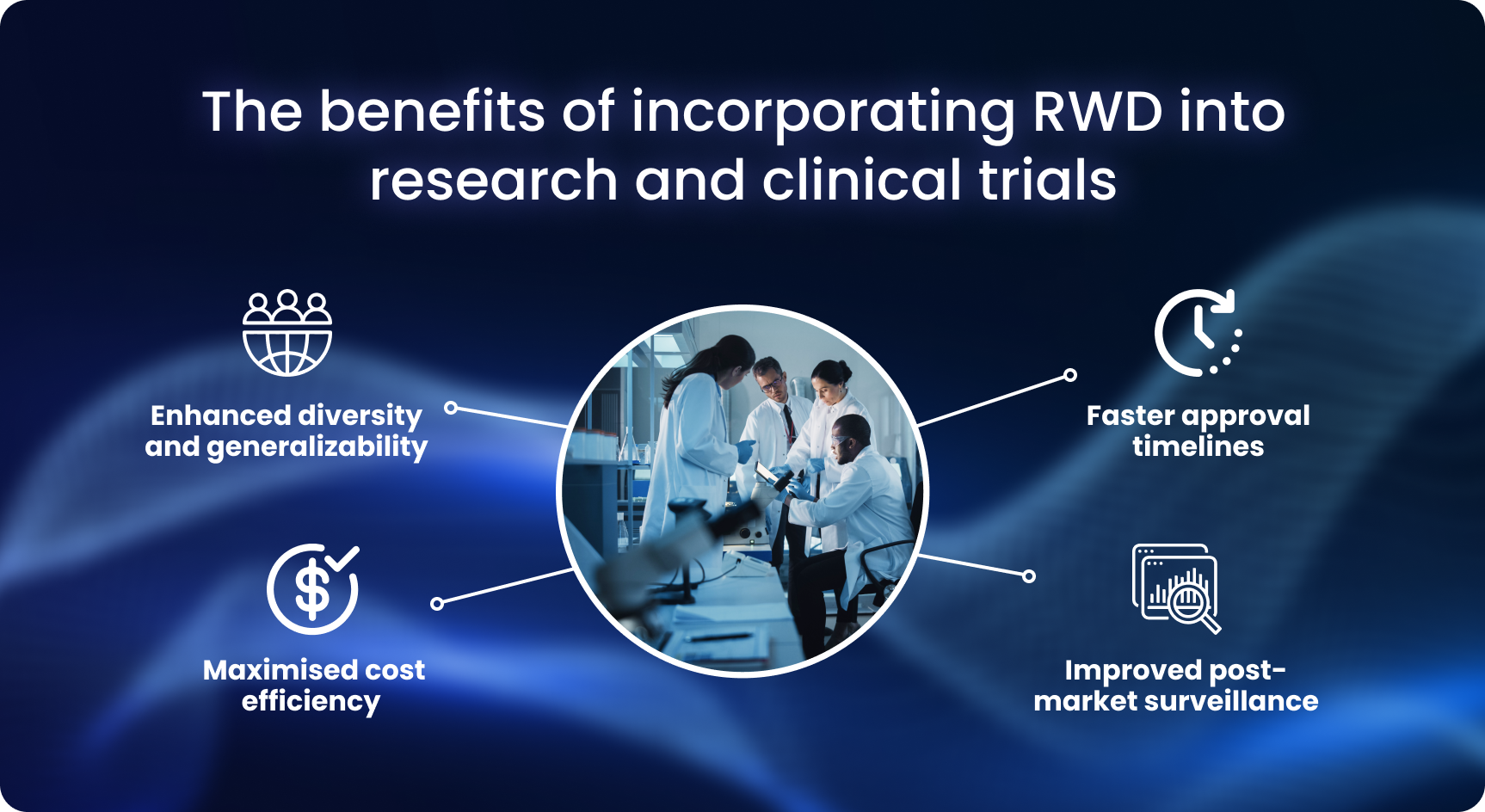Utilizing oncological data in discovery and validation

Introduction
In the realm of oncology, data is a powerful tool. It holds the potential to revolutionize cancer treatment and patient outcomes. Oncological data analysis, the process of interpreting and utilizing this data, is a critical aspect of modern medicine. It aids in the discovery of new therapies and the validation of existing ones.
This blog explores oncological data analysis and considers its role in personalizing cancer treatment, complementing cancer clinical trials, and impacting drug discovery and development for cancer. The challenges in collecting and analyzing high-quality oncological data are also discussed.
Using genomics to understand cancer at a molecular level
One of the most significant breakthroughs in oncology research has been the advent of genomic sequencing technologies. These advancements have enabled researchers to understand the genetic makeup of tumors, uncovering key mutations and aberrations that drive cancer progression. Key research studies have highlighted the importance of genomic profiling in identifying therapeutic targets and predicting treatment response.
Additionally, the integration of multi-omics data, including genomics, transcriptomics, proteomics, and metabolomics, has provided a comprehensive view of cancer biology. This type of multi-modal approach helps demonstrate the utility of integrating multi-omics data to elucidate the molecular mechanisms underlying drug resistance in cancer.
Furthermore, the integration of real world data (RWD), including electronic health records (EHRs) and patient-reported outcomes, enhances the scope of discovery efforts. By leveraging these diverse datasets, researchers can identify novel biomarkers, therapeutic targets, and prognostic indicators.
Overcoming challenges in oncological data collection
Whilst the advantages that can be gained by performing detailed oncological data analysis are clear, collecting high-quality oncological data can present several challenges. These include issues related to data privacy, security, and standardization, as well as the technical difficulties of harmonizing data across different platforms and countries.
Featured resource: Discover Lifebit’s approach to data security in our white paper
Advancements in health information technology and digital health technologies are helping to address these challenges. These tools not only enhance data collection but also ensure the integrity and security of oncological data, paving the way for more robust and reliable data analysis.
Validating discoveries through clinical trials
While the discovery of potential biomarkers and therapeutic targets for cancer is a crucial first step, their clinical utility must be rigorously validated through well-designed clinical trials. Oncological data plays a pivotal role in guiding the design and execution of these trials, ensuring that interventions are targeted and effective.

Recent advances in precision oncology, fueled by molecularly targeted therapies and immunotherapies, underscore the importance of stratifying patients based on molecular signatures. Studies such as those by Hyman et al. (2017) exemplify how molecular profiling can inform patient selection and improve clinical trial outcomes in precision oncology.
Real world data: complementing clinical trials
Real world data (RWD) is increasingly being recognized as a valuable complement to clinical trial data in oncology. This type of oncology data can provide insights into how a treatment performs in a broader and more diverse patient population.
By integrating RWD into oncological data analysis, researchers can gain a more comprehensive understanding of a treatment’s effectiveness and safety. This can help to validate clinical trial findings and inform treatment decisions in real-world clinical practice.

Featured resource: Read our complete guide to using RWD and RWE in clinical trials and research
Oncology data in drug discovery and development
Oncological data analysis plays a pivotal role in cancer drug discovery and development. It aids in identifying potential therapeutic targets and evaluating the efficacy of new treatments.
Through the analysis of genomic data and biomarkers, researchers can develop targeted therapies that are tailored to the genetic profile of a patient’s tumor. This precision medicine approach has the potential to improve treatment outcomes and reduce side effects.
Summary
Utilizing oncological data in discovery and validation represents a paradigm shift in cancer research and treatment. By harnessing the wealth of information generated from genomic profiling, multi-omics integration, and data analysis researchers can unravel the complexities of cancer biology and identify novel therapeutic avenues.
However, translating these discoveries into clinical practice requires rigorous validation through well-designed clinical trials. Oncological data continues to play a pivotal role in guiding the development and execution of these trials, ultimately driving forward the field of precision oncology and improving patient outcomes.
About Lifebit
Lifebit’s federated technology provides secure access to deep, diverse data access from over 100 million patients. Researchers worldwide can securely connect and analyze valuable real world, clinical and genomic data in a compliant manner.

